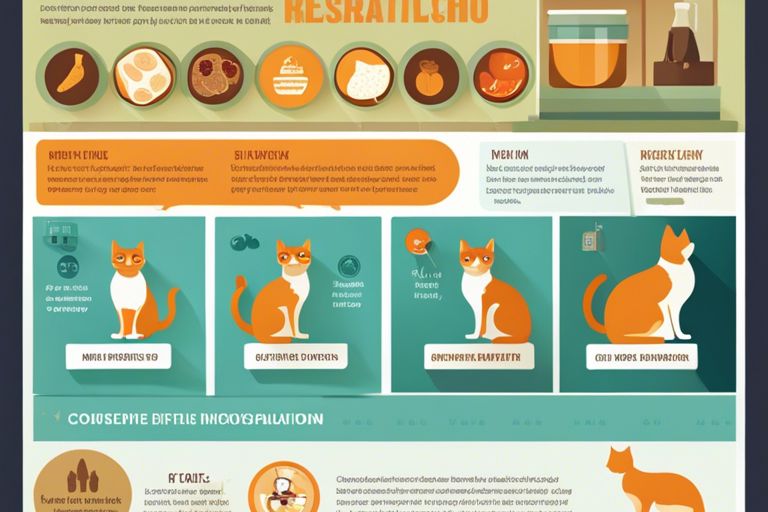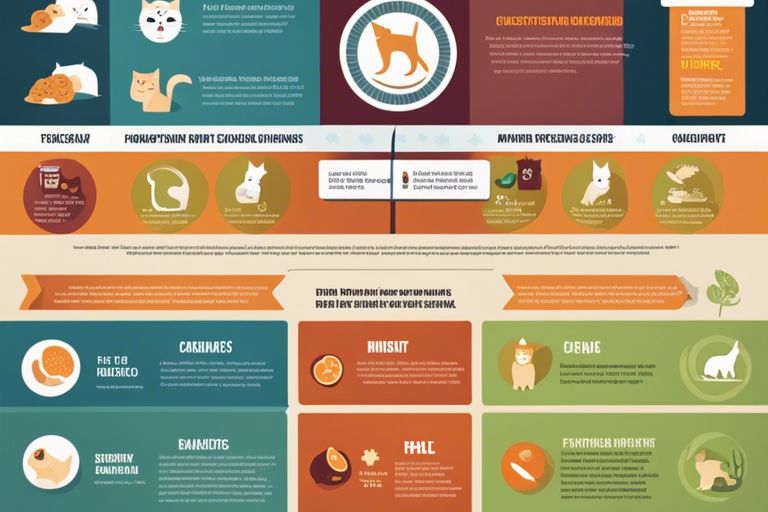Experiencing concern over your cat’s bloated belly is understandable, as it can be a sign of an underlying health issue. In some cases, a bloated belly in cats can be indicative of a serious medical condition that requires immediate attention. It’s important to understand the potential causes of your cat’s bloated belly so that you can take the appropriate steps to address the issue and ensure your cat’s well-being. In this blog post, we will discuss the most common reasons why your cat may have a bloated belly and what you can do about it.
Key Takeaways:
- Common causes: A bloated belly in a cat can be caused by a variety of factors, including gastrointestinal issues, fluid retention, pregnancy, or obesity.
- Veterinary examination: It is important to take your cat to the vet for a thorough examination to determine the underlying cause of the bloated belly. This will help in getting the appropriate treatment.
- Diet and nutrition: Monitoring your cat’s diet and providing a balanced nutrition is crucial in managing their weight and preventing bloating. Avoid feeding them foods that can cause gastrointestinal issues.
- Fluid accumulation: If your cat’s bloated belly is due to fluid accumulation, it could indicate a serious medical condition such as heart disease or liver failure, and prompt medical attention is necessary.
- Obesity management: If obesity is the cause of your cat’s bloated belly, consult with a vet on a weight management plan to ensure a healthy and balanced lifestyle for your pet.
Common Causes of Bloating in Cats
Some common causes of bloating in cats include dietary issues, food intolerance, parasitic infections, and certain medical conditions. It is important to identify the underlying cause of your cat’s bloated belly so that the appropriate treatment can be administered. Here are some common factors that could be contributing to your cat’s bloating.
Dietary Issues and Food Intolerance
If you have recently changed your cat’s diet or introduced new foods, it could be causing your cat’s bloating. Cats can be sensitive to certain ingredients, and food intolerance can lead to digestive issues and bloating. Additionally, overeating or eating too quickly can cause your cat to swallow air, leading to bloating. To help alleviate your cat’s bloating, ensure that you are feeding them a high-quality, balanced diet that meets their nutritional needs.
Parasitic Infections
Parasitic infections, such as roundworms, tapeworms, or hookworms, can cause bloating in cats. These parasites can affect your cat’s gastrointestinal tract and lead to symptoms such as bloating, vomiting, and diarrhea. It is crucial to regularly deworm your cat and keep them on preventive medication to reduce the risk of parasitic infections. If you suspect that your cat may have a parasitic infection, consult your veterinarian for a thorough examination and appropriate treatment.
Recognizing Symptoms and When to Seek Veterinary Care
Even though a bloated belly in cats can be a common occurrence, it’s important to pay attention to the symptoms and know when to seek veterinary care. Ignoring the signs of a bloated belly could lead to serious health issues for your feline friend. Here’s what you need to know about recognizing symptoms and when it’s time to take your cat to the vet.
Identifying Signs of a Bloated Belly
When it comes to identifying a bloated belly in your cat, there are some key signs to look out for. You may notice that your cat’s abdomen appears swollen or distended, and your cat may exhibit discomfort or pain when the belly is touched. Additionally, your cat may experience changes in their appetite or have difficulty eating, and you may observe excessive grooming or licking of the belly area. Keep an eye out for these symptoms, as they could indicate a bloated belly in your cat.
Knowing When It’s an Emergency
It’s crucial to know when a bloated belly in your cat constitutes an emergency situation. If your cat is exhibiting severe lethargy, weakness, or collapse, labored breathing, vomiting or retching without producing any hairballs or food, or signs of shock, it’s imperative that you seek immediate veterinary care. These symptoms could indicate a life-threatening condition such as gastric dilation volvulus or intestinal obstruction that requires immediate medical attention.
Diagnosis and Treatment
After noticing your cat’s bloated belly, it is crucial to seek professional help as soon as possible. To understand more about this condition, refer to A Guide to Cat Bloat. Your veterinarian will perform a series of diagnostic tests to determine the cause of your cat’s bloated belly and provide the appropriate treatment.
Professional Diagnosis Procedures
When you take your cat to the veterinarian, they will perform a thorough physical examination to assess the severity of the bloating and check for any other concerning symptoms. This may be followed by blood tests, X-rays, ultrasounds, or even exploratory surgery to identify the underlying cause of the bloating. These diagnostic procedures are essential in determining the most appropriate course of treatment for your cat’s condition.
Treatment Options for Bloating
Once the cause of your cat’s bloated belly is identified, your veterinarian will recommend the most suitable treatment plan. Depending on the underlying condition, treatment options may include medication, dietary changes, or surgery to alleviate the bloating and address the root cause. It is essential to follow your veterinarian’s instructions carefully and administer any prescribed medication as directed to ensure your cat’s swift recovery.
Prevention and Management
Unlike treatment for a bloated belly, prevention and management are important for your cat’s long-term health. By taking proactive steps, you can reduce the risk of your cat developing a bloated belly and manage any underlying health conditions that may be contributing to the issue.
Diet and Nutrition Management
When it comes to preventing and managing a bloated belly in your cat, diet and nutrition play a critical role. It’s important to ensure that your cat is receiving a balanced diet that meets their specific nutritional needs. Avoid overfeeding and limit treats to prevent weight gain, which can contribute to a bloated belly. Additionally, avoid feeding your cat human foods that are toxic to them, such as onions, garlic, and chocolate. Consult with your veterinarian to determine the best diet for your cat and consider incorporating a high-fiber diet to aid digestion and prevent bloating.
Regular Health Check-Ups and Preventative Care
Regular health check-ups and preventative care are essential for managing your cat’s overall health and detecting any potential issues, including a bloated belly. Annual examinations with your veterinarian can help identify any underlying health conditions that may be contributing to your cat’s bloating. Additionally, keeping up with your cat’s vaccination schedule, parasite control, and dental care can contribute to their overall well-being and reduce the risk of developing a bloated belly. You should also monitor your cat’s weight and body condition regularly to ensure that they maintain a healthy weight.

Conclusion: Why does my cat have a bloated belly?
Hence, it is important for you to keep an eye on your cat’s eating habits, activity levels, and overall health to identify any potential causes of a bloated belly. Additionally, regular veterinary check-ups can help catch any health issues early on and prevent the development of serious conditions. Remember to always consult with your veterinarian if you notice any changes in your cat’s health, as they will be able to provide accurate diagnosis and treatment options for your feline friend.
FAQ
Q: Why does my cat have a bloated belly?
A: A bloated belly in cats can be caused by various factors, including intestinal parasites, gastrointestinal issues, fluid retention, or underlying medical conditions such as liver or kidney disease. It is important to consult with a veterinarian to determine the exact cause and proper treatment.
Q: What are some common symptoms of a bloated belly in cats?
A: Common symptoms of a bloated belly in cats may include discomfort, lack of appetite, vomiting, diarrhea, lethargy, and a visibly enlarged abdomen. If you notice any of these symptoms, it is crucial to seek prompt veterinary care.
Q: How can I prevent my cat from developing a bloated belly?
A: To prevent your cat from developing a bloated belly, ensure that they receive regular veterinary check-ups and appropriate parasite control. Provide a balanced diet, maintain proper hydration, and promptly address any signs of illness or abnormal behavior. Keeping your cat healthy and maintaining their overall well-being may reduce the risk of a bloated belly.

Jayley, a devoted cat enthusiast, also writer for other cat blog as well. She aims to dedicated to providing comprehensive information, insights, and advice on everything you’d ever want to know about our whiskered companions.
